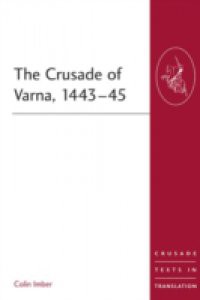The Crusade of Varna of 1443-45 was one of the decisive events of the late Middle Ages. Following the temporary Union of the Greek and Latin Churches in 1439, Pope Eugenius IV created an alliance which aimed to 'liberate' Byzantium and the Balkan Peninsula from the domination of the Ottoman Empire. The Ottoman Sultan, Murad II, held the Crusaders during the winter war of 1443, finally securing victory at Varna in November, 1444. The Crusade petered out in 1445 with the expedition of the Burgundian fleet on the Danube. More than any other single event, it was Murad's victory at Varna that secured Ottoman domination of the Balkan Peninsula, with consequences which are still apparent today.Three important works, hitherto largely unnoticed in western historiography, provide eyewitness accounts of the dramatic events of 1443-45 from the Christian and the Muslim side: an anonymous Ottoman text on The Holy Wars of Sultan Murad; a section of the Anciennes Chroniques d'Angleterre by the Bugundian, Jehan de Wavrin, and a German ballad on the Crusade by Michel Beheim. These are presented here for the first time in English translation, supplemented by a series of shorter contemporary texts relating to the events of the crusade, with an introduction and annotation.

